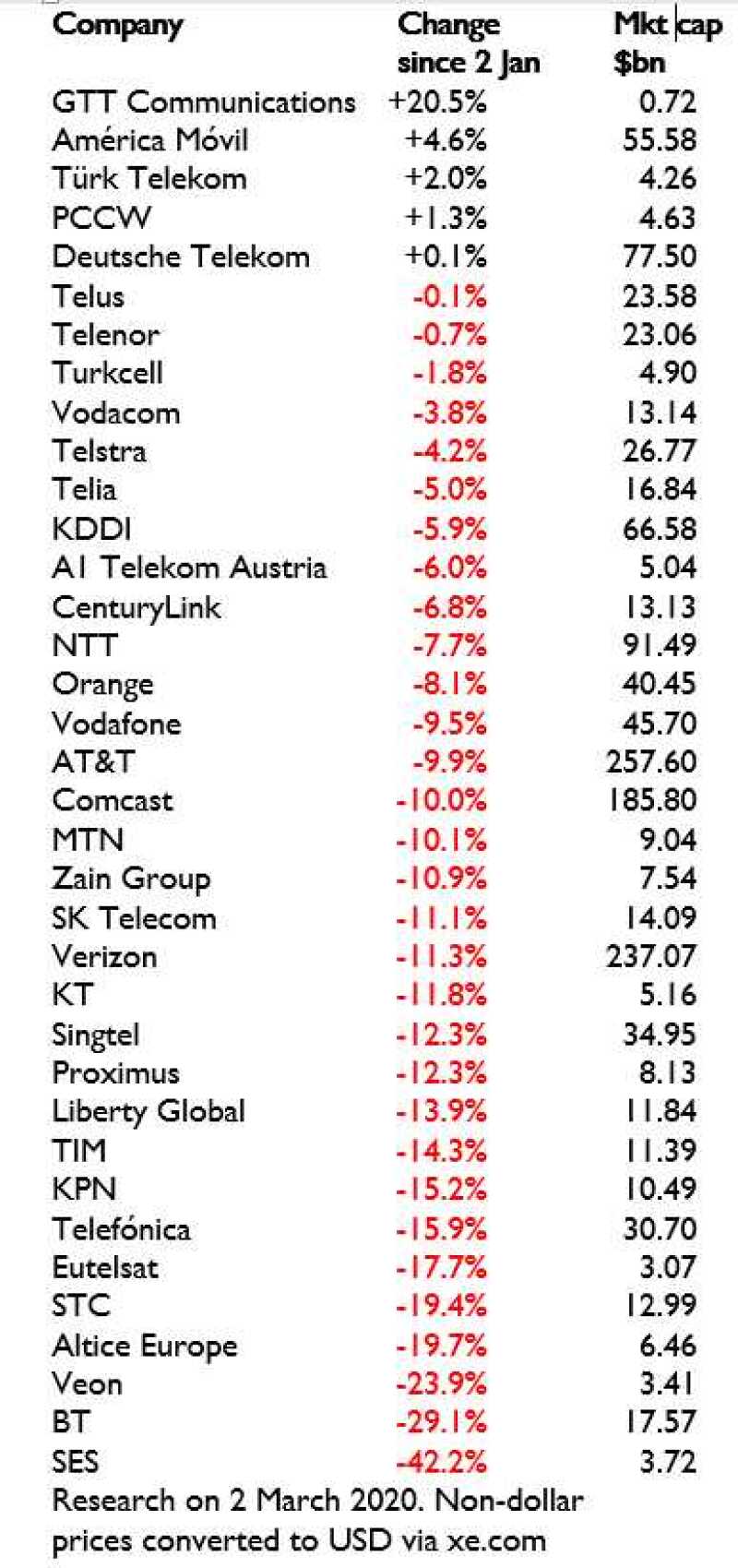
Capacity’s survey of 36 top global telcos shows that two thirds of them have performed worse than the US-based Nasdaq index, which has fallen by 6.1% since 2 January, the first trading day of the year. But 10 have done worse than the Dow Jones index, which has fallen 13.6%. BT’s shares have gone down 29.1% since 2 January, outmatched in Capacity’s survey by only Luxembourg satellite company SES, whose shares fell 42.2%.
The figures, gathered from worldwide stock markets on 2 March, show that the telecoms industry does not appear to be affected by coronavirus more than other companies.
Capacity’s survey – see table – shows that only five companies have seen their prices go up since the start of the year, including América Móvil of South America, Türk Telekom of Turkey, PCCW of Hong Kong and Deutsche Telekom of Germany.
The list includes GTT Communications, whose shares have put on 20.5% since the New Year – but the price has still to recover from last year’s peak of $42.89, on 16 April, and the company is still worth only $793 million, only a third of the $2.3 billion the company spent on buying Interoute in May 2018 and not much more than the $590 million it spent on Hibernia Networks in January 2017. GTT confirmed yesterday that its infrastructure division, including properties belonging to those companies, is now up for sale.
On the whole telecoms companies are not doing significantly better or worse than the world’s share markets as a whole. Frankfurt’s DAX has declined 12.9% since the beginning of January, and the London’s FTSE100 is down around 14.2% in the same period. In Tokyo the Nikkei is down a more modest 8.7% – so Japanese companies KDDI and NTT are doing better than their national stock market.
Meanwhile it’s not clear why BT (see chart) is doing so much worse that all other quoted incumbent operators. By comparison Proximus of Belgium is down 12.3%, TIM of Italy 14.3%, KPN of the Netherlands 15.2% and Telefónica of Spain down 15.9%.
One close observer pointed to “uncertainty about the amount of capex BT may have to find in the next few years and the potential impact on cashflow” because of “competitive pressure on fibre rollout from other fibre builders in the UK” as well as “uncertainty about what the UK government really wants on fibre/gigabit-capable services”.
BT’s market cap as of the start of March is the equivalent of US$17.57 billion, making it less than half the size of Orange of France and less than a quarter the size of Deutsche Telekom.






